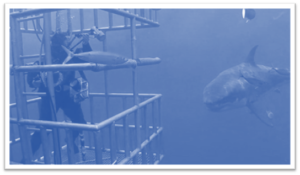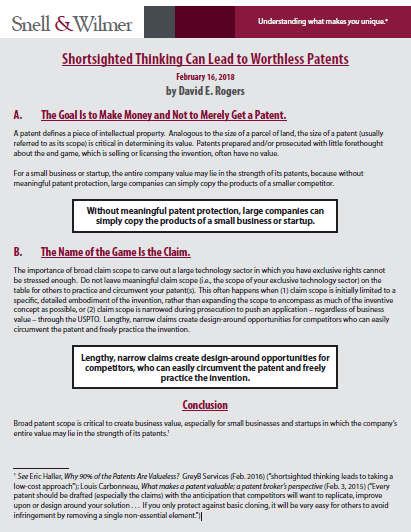

The ABC network television show Shark Tank has almost become a standard for entrepreneurs pitching their business to investors. In fact, if you do an Internet search for “Shark Tank lessons” you will get thousands of results for articles with great advice about business development and pitching your business. However, very little time is spent in those articles on what is behind the almost systematic question “Have you got a patent on that?”.
The goal of this article is to present a few thoughts on what the “sharks” know and some assumptions they may make based on the answer to this question.
Here are a few examples of what the sharks know.
- If you have a provisional patent application, they know you do not have a patent and you may never get one. Since anyone can file a provisional application on anything, there is no guarantee that they will get a patent unless it meets the requirements for a patent.
- They know that a good provisional should meet the requirements of a non-provisional patent application and in preparing it you will have identified the ways in which the product has distinctive differences from competitive products.
- They know that you are serious enough about your product and business to seek some protection and competitive advantage.
- If you have a patent, they know that your product has been researched, evaluated by several independent sources and recognized as new and different.
- They know that with a patent, the product is protected in a way that may make the competition think twice before copying it.
- They know that with a patent, they can bring legal action in the case of infringement.
- They know that patents improve options for licensing and licensing may be at higher royalty rates.
There are also several things that they might assume.
- They assume you are familiar with and recognize the value of having intellectual property assets.
- They assume you know your competition and have evaluated the risks.
- They assume you have taken advantage of all opportunities in your business development process.
- They assume you have made the initial investments needed to acquire long term advantages.
- They assume you will gain added value for your product since protected products generally obtain higher sale prices.
I haven’t seen every episode of Shark Tank but most of the entrepreneurs presenting products have at least sought, if not obtained, patent protection. This should be a warning to those who wish to follow in their footsteps, whether that be in a local, regional, or national pitch events. The question of patent protection should be answered and ideally applications filed before pitching a new product. The question that is posed at the pitch stage of business development needs to have been answered very early in the process.
A professional patent researcher can help you answer many of the questions you may have and prepare you for discussions with a patent attorney. They can help you identify opportunities or obstacles. Opportunities may be commercial opportunities seen with the review of the competitor landscape and opportunities for patent protection. Obstacles may include technical issues raised in similar patent documents or barriers due to existing competitor patents.
Going from an idea to a successful product is a multi-step process and the best business venture decisions are based on solid market and intellectual property research. You wouldn’t want to later find yourself swimming with sharks without a cage.








